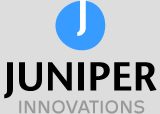Trust is the cornerstone of any successful programme, especially when dealing with stakeholders who play a crucial role in the decision-making and overall success of a project. As a project or transformation leader, establishing and maintaining trust with these stakeholders is essential for ensuring smooth communication, collaboration, and the achievement of goals. Here’s some ideas and a checklist on how to build and nurture trust with programme stakeholders.
Understand Stakeholder Expectations
Identify Stakeholder Needs: The first step in building trust is to understand the expectations and needs of your stakeholders. This involves identifying who your stakeholders are, understanding their interests, and what they expect from the programme. Conducting stakeholder interviews, surveys, or workshops can help gather this information.
Align Goals: Once you understand their expectations, work to align their goals with the program’s objectives. Demonstrating that you have their interests in mind builds credibility and trust from the outset.
Communicate Transparently and Consistently
Regular Updates: Keep stakeholders informed using short, sharp frequent communications. Whether things are going well or facing challenges, being transparent about the situation fosters trust. Programme communication shouldn’t all be about every activity being a green status, it lacks credibility.
Honesty and Integrity: When challenges arise, communicate them honestly. Avoid sugar-coating issues or hiding bad news. People appreciate trustworthiness and are more likely to believe you if they know you are straightforward.
Provide regular updates through multiple channels: For example using
1. Email updates
2. Regular in-person meetings
3. Video conferences
4. Project management tools (e.g., Asana, Trello)
5. Intranet or shared workspace
6. Newsletters
7. Instant messaging platforms (e.g., Slack, Microsoft Teams)
8. Phone calls for urgent matters
9. Social media (for external stakeholders)
10. Formal reports and presentations
11. Town hall meetings or Q&A sessions
12. One-on-one discussions
Deliver on Promises
Set And Agree Realistic Expectations: Set realistic goals and deadlines, and then work diligently to meet them. Delivering on your promises on a consistent basis helps build a track record of reliability. Checking in with stakeholders to ensure alignment on promises will build greater trust. Making promises that are outside your gift to give and that you are unlikely to keep helps to damage your relationships, credibility and trust.
Follow Through: If you commit to doing something, make sure it gets done. This builds trust as stakeholders will expect you to be diligent enough to complete your commitment. They know you are reliable.
Involve Stakeholders in Decision-Making
Collaborative Approach: Involve stakeholders in key decisions that affect the programme. It’s important to view the programme through different perspectives, so by asking for these across your stakeholders and groups you are building more community trust in the programme and it’s likelihood to succeed.
Involvement that matters: When stakeholders feel their contributions are important and valued, your leadership becomes more credible and matters to them more.
Show Empathy and Understanding
Active Listening: Seek stakeholder input. Listen to their concerns and feedback actively. Show that you value their perspectives, understand their worries and are willing to address them. Active listening builds rapport and trust.
Address Concerns Proactively: If stakeholders have concerns, address them promptly and proactively. Don’t wait for issues to escalate. Your responsiveness shows a personal touch that builds relationships and trust in the programme.
Demonstrate Competence
Show Expertise: The demonstration of knowledge and experience builds stakeholder confidence. This is on-going. Being able to answer difficult questions based on learning, experience, and skills helps to build trust that the programme can be lead to a successful outcome. A key part of this is the skills to develop certainty in what can be chaotic environments.
Continuous Improvement: Show a commitment to continuous learning, feedback and improvement. Constant learning and adapting to new challenges will help reinforce your competence.
Build Personal Relationships
Personal Interaction: Take the time to build personal relationships with stakeholders. Whether through informal meetings, one-on-one conversations, or social events, personal interactions help humanise the professional relationship.
Respect and Courtesy: Treat all stakeholders with respect and courtesy, regardless of their level of influence. This will help create a positive relationship and builds mutual trust.
Manage Conflicts Effectively
Conflict Resolution: When conflicts arise, address them swiftly and fairly. Be objective and seek to understand all sides of the issue before making decisions. Effective conflict resolution shows that you are fair and trustworthy.
Neutral Stance: Maintain neutrality and avoid taking sides. Stakeholders trust leaders who are impartial and focused on the best outcomes for the program.
Celebrate Success Together
Acknowledge Contributions: When milestones are achieved, recognise and celebrate the contributions of stakeholders. Acknowledgment reinforces their value to the program and builds a positive relationship.
Shared Success: Frame successes as shared victories, emphasising the collaborative effort that led to the achievement. This creates community spirit, a feeling of belonging and ownership as well as trust in the programme.

Be Accessible and Approachable
Be open: Find ways for stakeholders to see the programme has an open door, that anyone can reach out with any worries, issues or questions. Being accessible and approachable fosters an environment of open communication and trust.
Prompt Responses: Respond to stakeholder inquiries promptly. Delays in communication can erode trust, while promptness shows that you prioritise their concerns.
Next steps..
Building trust with programme stakeholders requires consistent effort, transparency, and integrity. By understanding their needs, communicating openly, delivering on promises, and involving them in decision-making, you can establish strong, trust-based relationships that contribute to the success of your program. Remember, trust is not built overnight, but with patience and diligence, it can be one of the most valuable assets in your stakeholder management toolkit.
If you’d like to get in touch, we’re happy to share ideas and chat..
